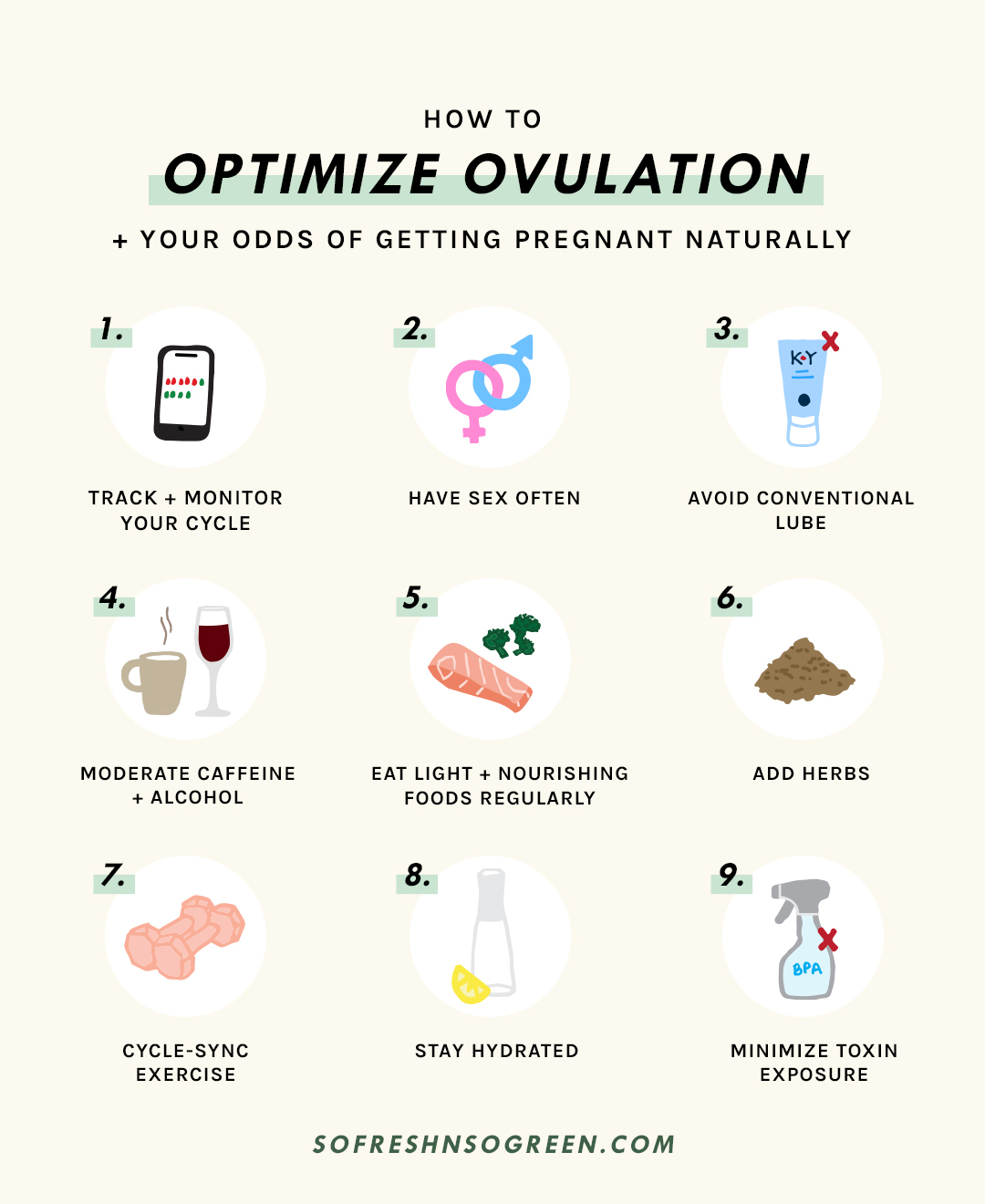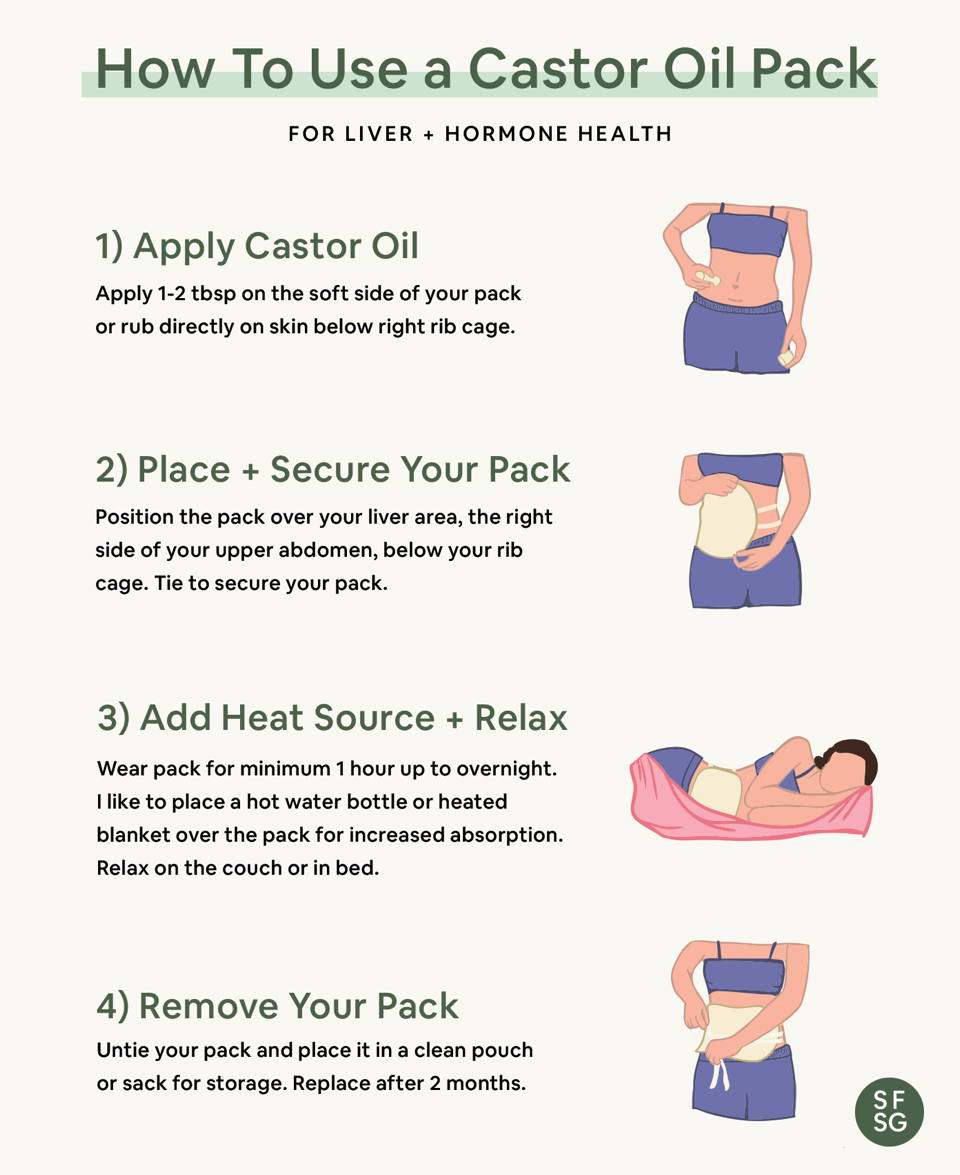recipes
lifestyle
wellness
motherhood
mindset
About
E-Books
Blog
Freebies
partnerships
hi, i'm lauren!
hey there!
I’m on a hot mission to help you balance your hormones & live your best life.
are we friends yet?
blog categories
browse the site
Home
Quiz
Get In Touch
Digital Course
search:
How To Optimize Ovulation, Boost Fertility + Increase Your Odds of Getting Pregnant Naturally
Apr 22, 2020
Recipe key
GF
VG
P
Vegan
Gluten Free
Paleo
DF
Dairy-Free
download now
Join Hormone Healthy Eats!
Become a SFNSG insider to get my monthly Substack, Hormone Healthy Eats! Packed with the latest hormone-healthy recipes
+ tips.
jump to recipe >
Currently in the United States, the National Fertility Association reports over six million women (or 1 in 8 couples) struggle with getting pregnant.
If you’re reading this and have personally been there, are currently struggling, or know someone who is, you know how devastating the effects of infertility can be.
While problems with getting pregnant are on the rise (hello toxin exposure overload, hormone-disrupting medication + birth-control and elevated stress levels) the hopeful (and often overlooked) news is women can counteract the damaging effects of these modern obstacles with simple, natural and powerful ways.
So whether you’re actively trying to conceive or dream of becoming a mother in the future, you can take steps now to boost and preserve your fertility — and reduce the need for expensive and invasive treatments along the way.
BONUS — Taking ANY steps to naturally boost your fertility and balance your hormones will only work to improve your life and health in a variety of ways (think less cramping and PMS, increased energy and productivity, better moods, an easy to maintain healthy weight, glowing skin, thick hair, better sleep, etc.)
Looking for more support on your journey to a healthy preconception, pregnancy + baby? Check out my Fertility Boosting Fundamentals Guide.
9 STEPS TO OPTIMIZE OVULATION, BOOST FERTILITY + INCREASE YOUR ODDS OF GETTING PREGNANT NATURALLY
1. Track Your Cycle
There’s simply no way around it, if you want to optimize your hormones and chances of getting pregnant naturally you need to start tracking and better understanding your female cycle and hormonal rhythm.
There are four phases, and while your ovulatory phase is your fertility window, all four matter and are critical to a healthy conception and pregnancy.
For a detailed guide (including a monthly plan with recipes and lifestyle tips) on how to better understand, support and align with your monthly cycle, I highly recommend checking out my Hormone Balance Reset Plan.
Additionally, here are the ways I recommend tracking your cycle to pinpoint your ovulatory phase and boost your chances of conceiving naturally:
+ MyFlo App — This app is one of the easiest and most convenient ways to track your entire menstrual cycle and pinpoint any trends or imbalances keeping you from currently getting pregnant.
+ Basal Body Temperature — Immediately after ovulation, your body temperature increases slightly (think summer phase of your cycle). You can track this by taking your temperature at the same time every morning. It should rise above 97.8F and remain higher for the rest of your cycle, unless you start your period, in which case it will drop. I recommend the Daysy Fertility Tracker for accurate results.
+ Cervical Mucus — When you ovulate your cervical mucus changes to a more fertile stretchy, slipper consistency (like egg whites) to help sperm swim and survive. Post-ovulation, it will become thick and sticky, making it less fertile.
+ Ovulation Predictor Kit — These kits are similar to a urine pregnancy test, except in this case they detect luteinizing hormone, as it surges right before ovulation. Try to use first thing in the morning and keep in mind they’re not 100% accurate. I like the Clear Blue Advanced Digital Ovulation Tests.
2. Have Sex Often
This one is kind of a no brainer but nonetheless very important to bring up as it’s essential for getting pregnant naturally (LOL). To optimize your chances of getting pregnant, you should be having sex once every other day during your fertile window (2 days before ovulation, 2-3 days during ovulation, 2 days after ovulation).
3. Avoid Conventional Lube
Lubricants like Astroglide and K-Y Jelly can decrease sperm motility and viability. If you need a safer option, try a mineral oil blend.
4. Limit Caffeine + Alcohol
If you can, it’s important to moderate or limit caffeine and alcohol consumption during the ovulatory phase, as estrogen is at its absolute peak, meaning your liver needs all the support it can to detox it properly (beets and sulphur containing veggies also help!) If your liver gets overloaded, it dumps estrogen out back into your bloodstream, which can lead to estrogen dominance, a key component of infertility.
5. Eat Light + Nutrient-Rich Foods Regularly
Because your estrogen is at its peak during ovulation, it’s helpful to eat foods that will support liver detoxification of potentially harmful excess estrogen. Cruciferous veggies like brussels sprouts, kale, cabbage, turnips, cauliflower, bok choy and broccoli are all awesome choices for this time of the cycle.
Light but nourishing (i.e. vitamin and mineral-rich) options such as quinoa and brown rice, leafy greens, berries, nutrient-rich veggies and cold-water fish are also great go-to’s during this time, as our appetite tends to be suppressed (due to our hormones shifting from “feeding and foraging” mode to sexual desire mode, oooh la LA).
Avoid heavy foods, as they can often make you feel lethargic (aka not in the mood to get it on) and make sure to still eat regularly to keep blood sugar balanced.
6. Add Herbs
Try taking a tsp of gelatinized organic maca powder a few days before, during and after ovulation to boost libido and fertility.
Shatavari is another adaptogen to consider which works to boost LH production and support libido during ovulation. Try taking it in either tea or powder form from menstruation up until ovulation begins, then stop and resume the next cycle.
Lastly, Red Clover is an herb that helps to increase cervical mucus and lubricate the vagina naturally. You can drink it as an infusion or tea daily to promote optimal conception.
7. Incorporate Exercise
Your ovulatory phase is a great time for intense physical exercise, activities, and sports, but make sure to lighten up in the upcoming weeks as your body is doing a lot of work and it needs all the energy it can get. Because an egg is being released and traveling down your fallopian tube you may feel slightly stiff or sore around the hips, lower abdomen, and lower back, so hip-opening yoga poses can be helpful.
8. Stay Hydrated
Your cervical fluid (which helps the sperm find and target the egg) gets sluggish when you don’t drink enough water. Your digestion slows a bit during this time and bloating can occur, so optimal hydration works to keep everything balanced as well.
9. Minimize Exposure To Toxins/Smoking
There’s no way around it, both you and your partner should ditch smoking and minimize toxin exposure if aiming for a healthy pregnancy and baby, as it lowers the number and quality of sperm, disrupts endocrine function and is linked to an increased risk in both miscarriage and ectopic pregnancy.
Some ways to reduce toxin exposure include: swapping plastic containers for glass, buying organic food when possible, downloading the Think Dirty app to look up house cleaning and beauty products (and switch to non-toxic options, if possible) and purchase a water filter (I love the Berkey).
BOTTOMLINE
While sex during ovulation is an essential part of conception, the more you understand about your body and hormones during this critical fertility phase, the more action you’ll be able to take to naturally increase your chances of getting pregnant. I hope you found this post helpful, and here are some additional resources I recommend that may support you on your journey:
+ Fertility Boosting Fundamentals Guide
+ 28-Day Hormone Balance Reset Plan
+ Trying To Get Pregnant? These Fertility-Boosting Foods + Recipes Can Help
+ How To Boost Male Fertility Naturally
+ How To Have Better Sex + Boost Libido Naturally
+ How To Tell If You Have A Thyroid Imbalance + Optimize Thyroid Health
+ Hormone-Balancing Foods To Eat For Each Phase of Your Menstrual Cycle
+ Do You Have A Hormone Imbalance? Take This Quiz To Investigate
+ Hormone Balancing Superfoods + Staples For Your Freezer, Fridge + Pantry
+ How To Naturally Balance Your Hormones with B-Vitamins
+ How To Support Your Hormones During Stressful Times
+ Your Guide on Cooking For Natural Hormone Balance

If you loved that...
hey!
Keep Browsing
Site
Keep Browsing
Site
the
about
e-books
blog
downloads
quiz
Welcome friend, I'm lauren.
I’m honored to support you on your journey to optimal hormone health + happiness. Thanks for being here babe.








[…] During the first half of your cycle (menstruation, follicular and ovulatory phase) estrogen levels begin to rise and steadily increase in preparation for ovulation (the release of an egg from your ovary) in order to potentially get pre… […]
[…] hormones are, the easier they can carry out their functions, which includes creating healthy eggs, ovulating regularly and consistently, producing enough progesterone to build a safe and cushy endometrium lining for the egg to grow in, […]
[…] + How To Optimize Ovulation + Your Chances of Getting Pregnant Naturally […]
[…] During the first half of your cycle (menstruation, follicular and ovulatory phase) estrogen levels begin to rise and steadily increase in preparation for ovulation (the release of an egg from your ovary) in order to potentially get pre… […]
[…] simply cannot do their jobs effectively, which can lead to infertility, typically in the form of irregular ovulation (which often accompanies PCOS and thyroid issues) or a shortened luteal phase (which can prevent […]
[…] cannot do their jobs effectively, which can lead to fertility challenges, typically in the form of irregular ovulation (which often accompanies PCOS and thyroid issues) or a shortened luteal phase (which can prevent […]